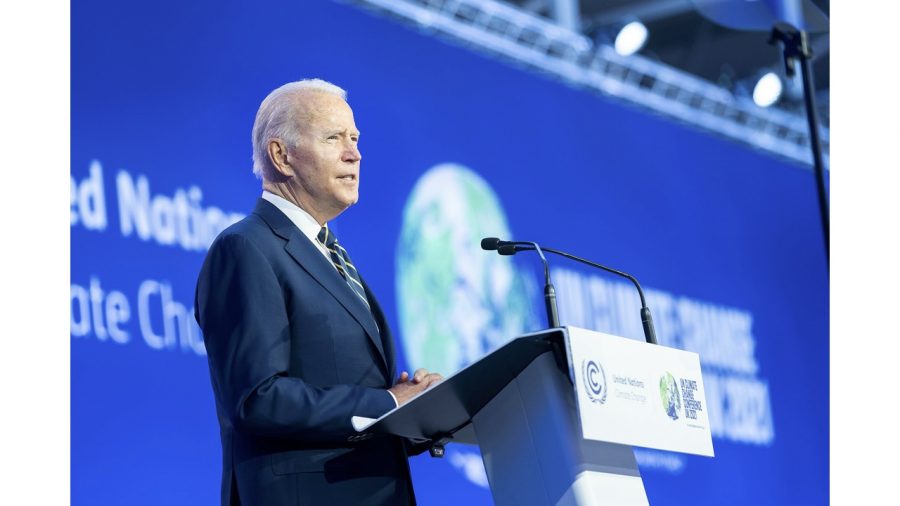“The COP26 is over. Here’s a brief summary: Blah, blah, blah. The real work continues outside these halls. And we will never give up, ever,” said Greta Thunberg, 18-year-old environmental activist.
The 2021 United Nations Climate Change Conference (COP26) held on Nov. 13 included over 200 countries convening to discuss the serious and rapidly decreasing climate health and the possible solutions to stall it. The meeting ended with the new installment of the Glasgow Climate Pact (GCP).
The main points of the GCP included mitigation, coal, adaptation and climate finance, loss and damage and reaffirming the Paris Agreement. All of these focus on the biggest issues currently harming the environment.
However, not all countries were compliant with the results from COP26. India, for example, requested several changes in the vocabulary of the pact in order to make the changes requested less strict. Indian Environment Minister Bhupender Yadav elaborated on India’s want for easier changes. “How can anyone expect developing countries to make promises about phasing out coal and fossil fuel subsidies? Subsidies provide much needed social security and support.”
Referring to India’s use of subsidies to provide liquified natural gas to low-income households, India’s economic state brings up another complication towards what changes can realistically be made.
In addition to India’s economic problems, other impoverished and developing countries are angry about the failed promises from their allies and the request for greater change despite that.
One hundred billion dollars a year to be given to developing countries in order to help with their role in halting the climate crisis was promised to be given more than 10 years ago. This aid failed to occur by the 2020 deadline set it. Now, the situation has escalated, so $100 billion is no longer sufficient to help.
As a result, the GCP decided to double that amount of money by 2025. In addition to the conference’s money ideas, the agreement to cut down emissions to reduce the global warming change by 1.5 degrees Celsius is also described by activists as not enough.
“The Earth will warm by 2.4C if all governments met the 2030 targets, 2.7C with current policies. These NDCs are based on flawed and underreported numbers. And this is IF leaders meet their promises, which judging by their track record is not very likely… This is what some seem to celebrate today,” said Thunberg.
In summary of the promises made from the COP26 Summit, the real question remains of whether these agreements will be withheld or broken like past agreements meant to help climate change and environmental damage.










Ethan • Dec 3, 2021 at 8:27 am
I think this article is important in the way that it could effect our future. I think the article was very well written and used a lot of well written quotes.